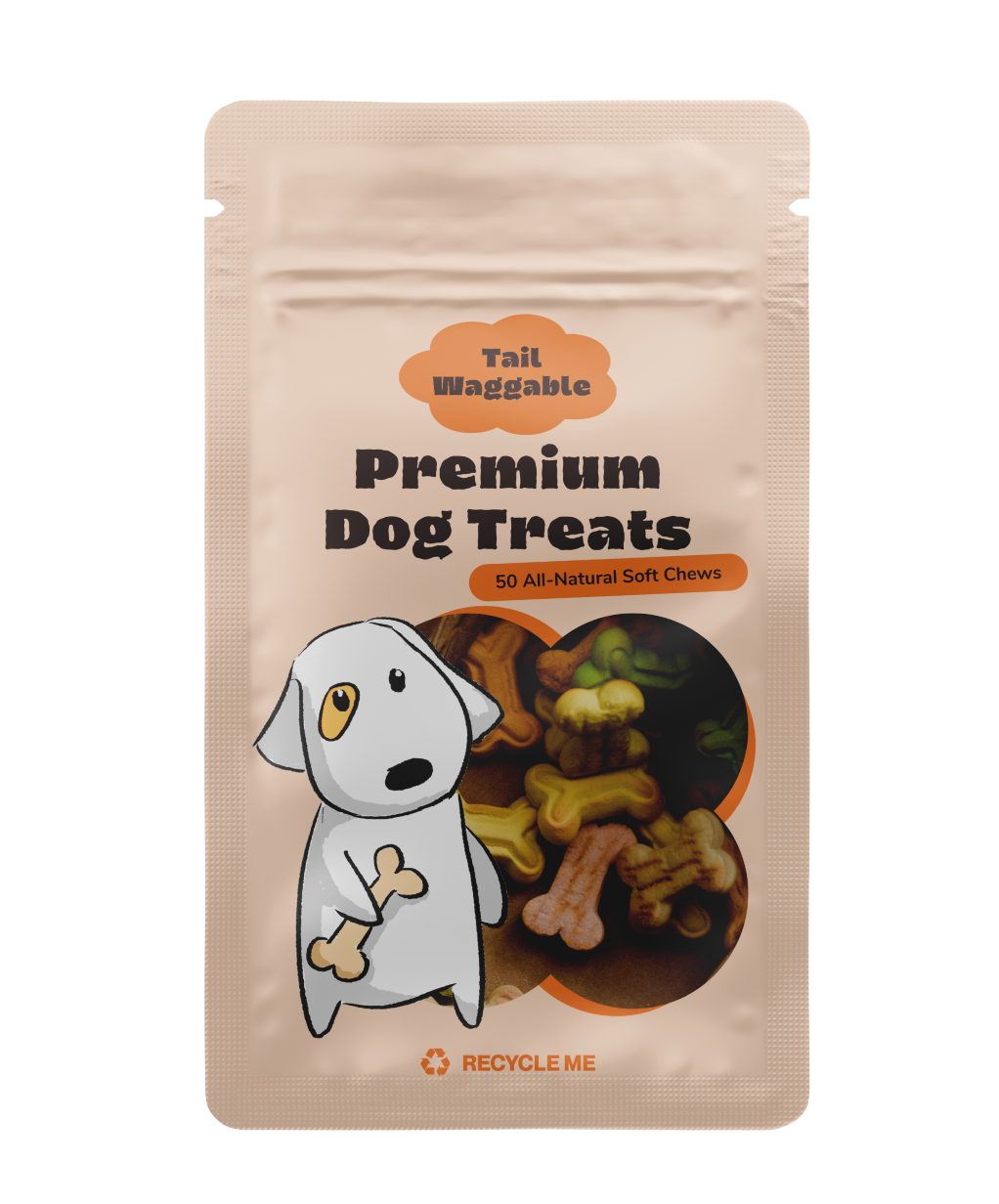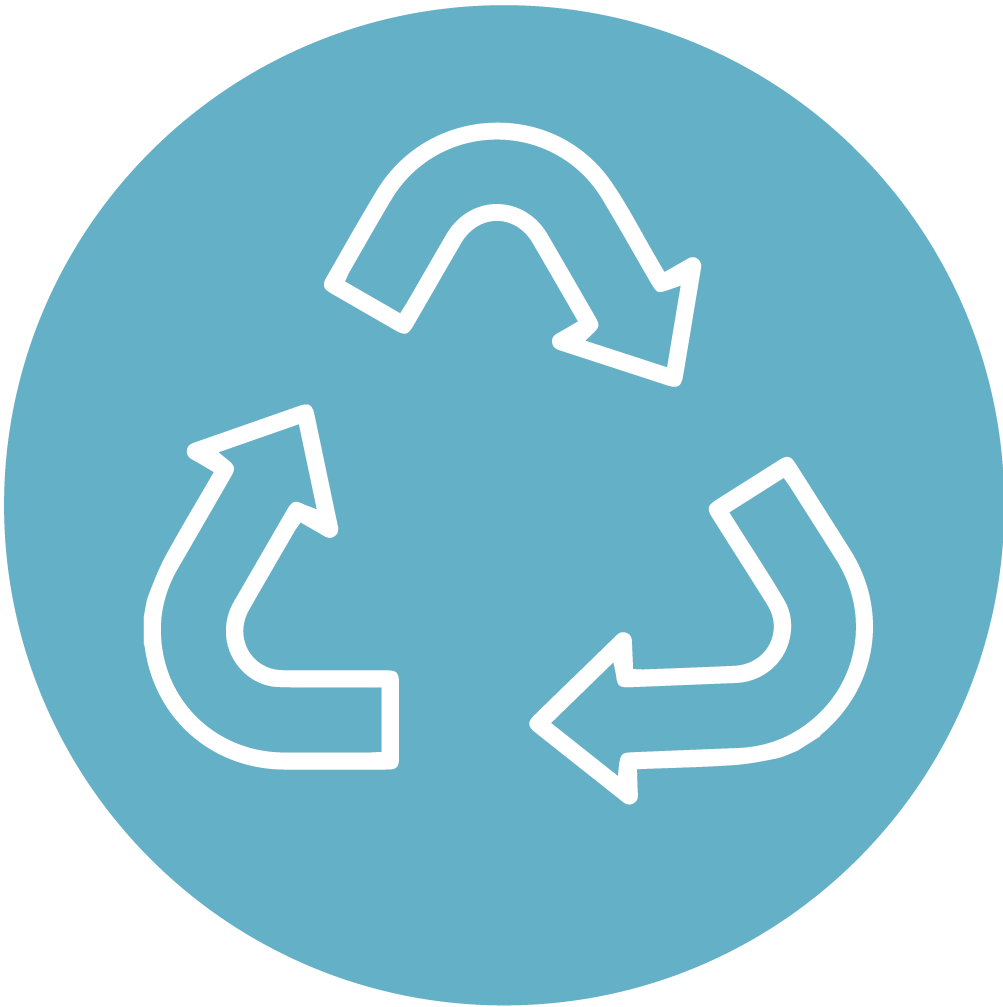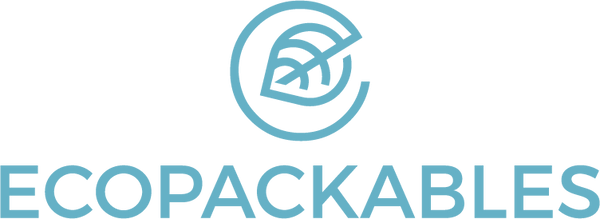-
In today’s world, sustainability isn’t just a buzzword—it’s an imperative. As businesses shift towards greener solutions, the demand for eco-friendly packaging is stronger than ever. Major retailers and consumers alike are helping to drive up sustainability standards, with 75% of consumers opting to pay a premium for more eco-friendly products. With the rise in awareness of sustainable practices, it’s important to get a head-start on sustainability for both the success of your business and its impact on the environment.
IN THIS GUIDE
- Why Brands Are Moving to Recyclable Pouches
- The Challenges of Thin-Film Recycling
- Why Choose EcoPackables Recyclable Pouches?
- Sustainable, High-Performance Packaging Materials
-

Why Brands Are Moving to Recyclable Pouches
-
In the U.S., companies face increasing pressure from Extended Producer Responsibility (EPR) laws, particularly in states like California, Oregon, and Colorado, where brands are financially responsible for the lifecycle of their packaging. Europe has taken an even stricter approach, with regulations like the EU Packaging and Packaging Waste Directive (PPWD) setting aggressive recycling targets and mandating the use of recycled content in packaging.
-
Large retailers like Walmart, Amazon, and Whole Foods are requiring their suppliers to meet new sustainability standards, many of which involve transitioning to recyclable materials. This shift means that brands selling into major retailers need to be aware of the specific sustainability guidelines each retailer enforces. For example:
-

Walmart has strict recyclable packaging guidelines that require single-material flexible packaging to be designed for in-store drop-off recycling.
-

Amazon has a Frustration-Free Packaging (FFP) program that encourages the use of recyclable materials and optimized designs to reduce waste.
-

Whole Foods has banned certain non-recyclable plastic packaging formats and encourages compostable or paper-based alternatives.
-

Costco is pushing for greater transparency in packaging sustainability, requiring brands to validate environmental claims with third-party certifications.
Each retailer has unique requirements, so brands must ensure compliance before launching a product in these channels. Failing to meet these standards can result in rejected shipments or costly redesigns, not to mention the potential loss in revenue with competing brands opting for sustainable options that make consumers feel good about their purchases.
The Challenges of Thin-Film Recycling
Recyclable packaging is a step in the right direction, but its success depends on access to proper recycling infrastructure—which varies significantly across regions. Thin-film plastics, like those used in stand-up pouches, require specialized facilities that many municipal programs don’t support. This means that, even when recyclable, these materials can still end up in landfills due to contamination, improper disposal, or a lack of processing capabilities.
But rather than abandoning recycling efforts altogether, brands have an opportunity to drive demand for better solutions. By choosing recyclable packaging now, businesses help push the recycling industry forward, encouraging investment in more efficient collection and processing systems.
Why Choose EcoPackables Recyclable Pouches?

Mono-Material Pouches
Our Most Recyclable Option: Our 100% polyethylene (PE) pouches are designed for store drop-off recycling programs, making them the easiest to recycle within today’s infrastructure. Unlike multi-layer pouches that mix different plastics, mono-material designs improve the likelihood of successful recycling.

Other Sustainable Options Beyond Mono-Material
We also offer solutions that incorporate post-consumer recycled (PCR) content, which reduces reliance on virgin plastics and helps keep existing materials in circulation. Additionally, our portfolio includes compostable packaging for brands looking for alternative waste-reduction strategies.

Designed for Circularity
Whether using recyclable mono-materials, PCR, or compostable options, our packaging helps brands reduce waste and contribute to a more circular economy.
While thin-film recycling isn’t perfect, the best way to improve the system is to use materials that fit within it—and that’s exactly what EcoPackables helps brands achieve.
Sustainable, High-Performance Packaging Materials
At EcoPackables, we recognize the challenges in thin-film recycling and have developed solutions that prioritize both recyclability and circularity. Our PCR-based pouches are designed to meet sustainability goals while offering the same high-barrier protection and functionality that brands expect.
Material Options
EcoPackables offers a range of material options backed by verified Life Cycle Assessment (LCA) data, ensuring brands can choose the best solutions for their sustainability goals. We analyze factors like carbon footprint, water usage, and recyclability to determine which materials offer the best environmental performance.

BioLaminate™: A Renewable & Recyclable Alternative
Our BioLaminate™ pouches are made from sugarcane-derived polyethylene (PE), offering a renewable alternative to fossil-fuel-based plastics. Because BioLaminate™ is chemically identical to traditional PE, it can be recycled in the same streams as conventional plastics and serves as an easy drop-in replacement. Depending on the selected barrier properties, it can provide comparable protection to standard flexible packaging.
- Sustainability Benefit: Made from renewable resources, reducing reliance on petroleum-based plastics.
- Best Use Cases: Snacks, powdered supplements, dry goods.
Barrier Properties: Can achieve moderate to high moisture and oxygen barriers, depending on the chosen structure.

ReLaminate™: A PCR-Based, Recyclable Option
Our ReLaminate™ pouches incorporate post-consumer recycled (PCR) materials, reducing reliance on virgin plastics while maintaining high durability and barrier performance. Designed for store drop-off recycling, ReLaminate™ ensures that brands can integrate recycled content into their packaging without compromising functionality or recyclability.
- Sustainability Benefit: Uses post-consumer recycled content, keeping plastics in circulation and supporting a circular economy.
- Best Use Cases: Coffee, pet treats, protein powders, granola, and dried fruits.
Barrier Properties: High moisture and oxygen barriers, ensuring extended shelf life and product protection.

Multi-Layer & Non-Monomaterial Films: Understanding the Trade-Offs
While we strive to make packaging recyclable, not all products can be packaged in monomaterial films due to the barrier properties required. Multi-layer laminates (such as those incorporating foil or PET) provide essential functions like oxygen and moisture protection, ensuring product freshness and shelf stability, but they also make recyclability more challenging.
When a package is unlikely to be recycled due to the nature of the product inside (e.g., high-fat content, chemical contamination, or food residue), beginning-of-life considerations become even more important. In such cases, using materials with post-consumer recycled (PCR) content or renewable sources helps reduce the environmental impact before disposal, ensuring that even if the packaging isn't recycled, it has contributed to reducing virgin plastic use and overall waste.
Key Benefits of EcoPackables Recyclable Pouches

Sustainable & Recyclable
At EcoPackables, we use 100% recyclable materials made from PCR content whenever possible, ensuring that our packaging supports sustainability without sacrificing functionality. For products that do not require ultra-high barriers or thick multi-layer walls, we offer mono-material recyclable options that can be processed through store drop-off programs, making it easier for consumers to recycle properly. By choosing EcoPackables, your brand reduces reliance on single-use plastics and contributes to a circular economy, aligning with both regulatory trends and consumer expectations for eco-friendly packaging.
High-Performance Protection
Recyclable doesn’t mean fragile. Our pouches are designed to be lightweight yet durable, offering strong moisture, oxygen, and contaminant barriers to keep products fresh and protected throughout their shelf life. For food, supplements, pet treats, and other packaged goods, we balance sustainability with performance, ensuring that your product stays secure without excessive packaging waste.
Customizable to Your Brand
Your packaging should reflect your brand’s identity while meeting sustainability goals. EcoPackables offers a wide range of sizes, shapes, finishes, and print options to create the perfect pouch for your product. Whether you prefer a sleek modern design, a bold and vibrant look, or an earth-toned, natural aesthetic, our customizable solutions help your brand stand out on the shelf while staying eco-conscious.
How Brands Can Move Toward Sustainable Packaging
For brands looking to transition to recyclable and sustainable packaging, here’s what to consider:
-

Evaluate Your Recycling Infrastructure:
Ensure your packaging aligns with recycling capabilities in key markets.
-

Incorporate PCR Content:
Reduce reliance on virgin plastics and optimize sustainability from the start of the packaging lifecycle.
-

Work with Sustainable Partners:
Collaborate with packaging providers who understand the complexities of thin-film recycling and PCR integration.
-

Understand Retailer Requirements:
Align packaging choices with retailer-specific sustainability guidelines to avoid non-compliance.
-

Educate Your Consumers:
Clear labeling and messaging help ensure proper disposal and increase the likelihood of recycling success.
At EcoPackables, we help brands navigate these challenges by offering packaging solutions that not only meet sustainability regulations but also support real-world circularity. Whether you’re switching to recyclable pouches for the first time or upgrading to PCR-based packaging, we’re here to help you make the transition seamlessly.
Ready to Make the Switch? Contact us today to learn more about our recyclable and PCR-based pouches, and let’s build a more sustainable future together.







